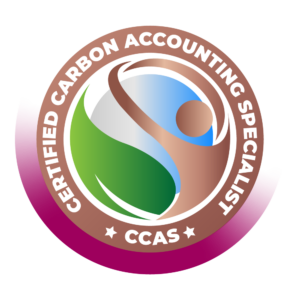About Course
Certified Decarbonization Professional – CDP Overview
Building decarbonization is a process that aims to reduce human-made greenhouse gas (GHG) emissions from buildings throughout their life cycle, including design, construction, operation, occupancy, and end of life. Primary sources of GHG emissions include construction, energy use, methane, and refrigerants.
Climate change is primarily caused by the rise in greenhouse gas emissions, which have been increasing since 2012. Countries with high GHG emissions are implementing measures to enhance energy efficiency to combat this global issue.
A building life-cycle assessment considers operational and embodied emissions, with carbon dioxide equivalent (CO2e) as the standard metric for quantifying GHGs.
However, to combat the effects of climate change and austerity, continuous efforts to reduce GHG emissions through legal and technical methods are required. Governments should also synchronise laws, standards, and tools to protect the environment against public nuisances and private interference. The construction industry has played a significant role in the rise of GHG emissions.
The ASHRAE Certified Decarbonisation Professional (CDP) certification aims to equip professionals with knowledge and skills to contribute to building decarbonisation goals, focusing on principles and techniques for reducing greenhouse gas emissions throughout buildings.
Carbon dioxide (CO2) and other greenhouse gases are released as a result of power generation, transportation, and other industrial and commercial activities, which worsen global environmental impacts.
ASHRAE is an international organisation dedicated to advancing the arts and sciences of heating, ventilation, air conditioning, and refrigeration for a sustainable world. The Certified Decarbonisation Professional (CDP) certification programme validates job competency in internationally recognised technical information.
Corporates should adopt carbon-reducing measures immediately to address environmental issues. Conducting a carbon audit is crucial for identifying carbon emissions sources and quantifying environmental impact. Energy consumption is a significant contributor to carbon emissions, making it beneficial to minimise carbon footprints by incorporating energy-conservation practices.
Krishnaji Pawar, an accomplished sustainability specialist with expertise in smart city development, sustainable design strategy development, environmental impact assessment, green building certification (LEED, GSAS, etc.), energy usage modelling, greenhouse gas accounting, and emissions management, developed the Certified Decarbonization Professional – CDP Overview Course.
Learning Objectives
- Climate change and sectoral decarbonization approaches.
- Decorbonization-built environment strategies.
- Building operational and embodied carbon.
- Professional certification for decarbonisation audits.
- Carbon, sustainability, and GHG accounting.
- Certified Decarbonisation Professional Exam Sample Questions
- Summary and Resources
Certified Decarbonisation Professionals’ Role
- Assist companies and organisations in reducing their carbon footprint.
- Understand the principles of the Paris climate agreement, the Kyoto Protocol, and other guidelines.
- Interpret trends and legal requirements.
- Conduct decarbonisation audits and emission inventories.
- Identify reduction opportunities.
- Set up a GHG emissions management programme.
- Report carbon emissions in compliance with international standards.
- Structure financing and marketing to ensure project success
Other Related courses
Certified Decarbonisation Professional- CDP Exam Question Bank
The Certified Decarbonisation Professional(CDP) Exam Question Bank consists of multiple-choice questions. The students will be able to assess their knowledge and ability to finish the exam with the required score by practicing 500 questions in five simulation exams to be completed in 4 hours each.
Learning Objectives
- Over 500 questions in 5 practice exams range from easy to hard to specialist.
- Understand each question and answer’s reasoning and related knowledge area to restudy or revise.
- Learn the GHG emissions management program, report carbon emissions according to international standards, and verify emissions. acronyms.
- Understand each question and answer’s reasoning and related knowledge area to restudy or revise.
- Recognize strategies and make smart choices.
- Experience the CDP exam.
- Consider the practice test part of your education.
- New CDP: 121+ Key Terminology Flash Cards!
- CDP_Engineering and HVAC Design Equations
Global Carbon Markets – Emissions Trading
This course provides instruction on the economic theory and practical implementation of cap-and-trade mechanisms designed to regulate greenhouse gas emissions through the use of market forces. Its objective is to comprehend the economic theory and implementation of these systems, as well as their climate change mitigation function.
Fundamentals of Organizational GHG Accounting
The Fundamentals of Organizational GHG Accounting program provides professionals with the knowledge and abilities necessary to assist businesses in their preparations for climate action. This includes the development of climate action plans (low emission development planning), climate adaptation plans, and greenhouse gas (GHG) emission inventories.
Course Content
Section 1: Introduction and Course Outline
-
16:24
-
L1A_1CDP_Overview Handout
-
L1B_1CDP_Overview
15:10 -
L1B_1CDP_Overview Handout
Section 2: Climate change and sectoral decarbonization approaches
Section 3: Strategies for a decorbonization-built environment
Section 4: Building Operational and Embodied Carbon, Kyoto, and Beyond.
Section 5: Professional Certification for Decarbonisation Audits
Section 6: Carbon, Sustainability, and GHG Accounting
Section 7: Summary and Resources
ASHRAE CDP Practice Test: Test Your Knowledge!
Student Ratings & Reviews



